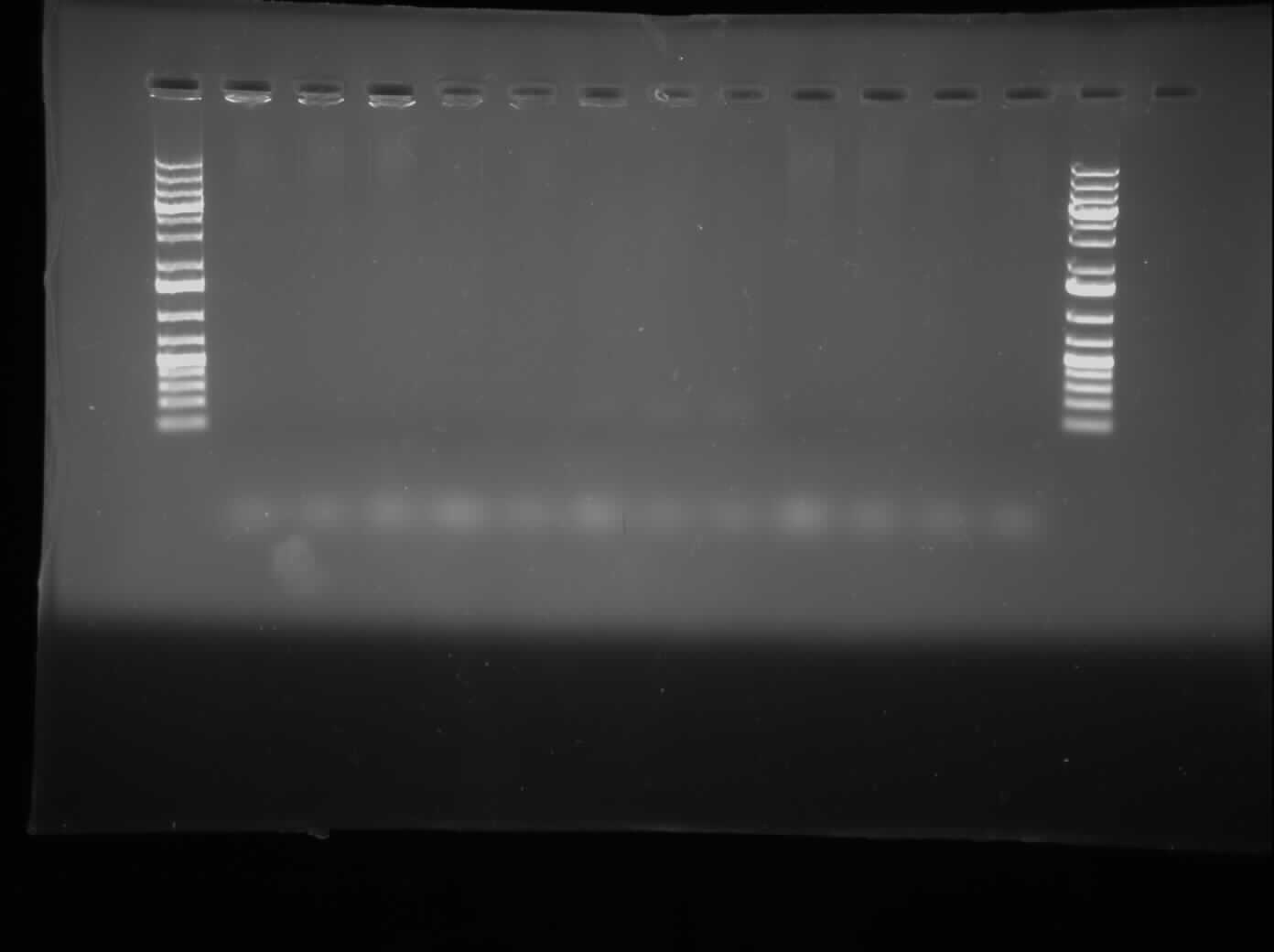Team:Calgary/29 July 2010
From 2010.igem.org

Thursday July 29, 2010
Raida
Today I ran a 1% agarose gel electrophoresis of the PCR products that were done to amplify MalE and MalE31 genes with delete sequences and BBK-MalE and BBK-MalE31 primers. The results were negative as we saw no bands in lanes 1,4 and 5 as expected. Lanes 2 and 3 showed bands but there were other bands as well whic hindicated contamination. The bands were faint as well, so it was decided that the gel will be diregarded. Later during the day, Emily and I worked on a contstruction of MalE Gene (insert) which was isolated from the plasmid last week using gene specific primers with TOPO (vector). The purpose of doing this construction is to insert our gene of interest into a vector which is easy to work with and which has been used previously in the Calgary iGEM team and the compatibility was high. We also did the transformation and left it in the incubator and hope to see colonies tomorrow. Since the TOPO is Kan resistant, and the colonies will be growing in a Kanamiasine Plate, there will be no selection pressure. So they will be sent for sequencing to ensure that the insert and vector have ligated properly and that the constructions are successful.
Chris
Today, I ran a 1% gel of the PCR that was run to try to extract the CpxP promoter from the E. coli Top10 competent cell genome. The gel was run with all twelve tubes separate and it resulted in the gel picture shown on the right. While this was running, I did a PCR purification of the PCR product using a Qiagen kit. The gel showed that the PCR was unsuccessful and the tubes were discarded. A gradient PCR was set up with both differing temperatures (50°C-56°C) and differing MgCl2 concentrations of 1.5 µM, 2.0 µM, and 2.5 µM. The results of this will be run on a gel tomorrow. As well, I sent out a sponsorship letter to one of the University's premier sponsors: PepsiCo Inc.
Jeremy
Today I ran a 1.2% regarding pRFP and the results came out negative. The results were very similar to the PCR that Alex and I did yesterday. The PCR was using the conditions which had the most promising results from biobricking the pRFP using the gradient PCR. Tomorrow I will reattempt to biobrick pRFP using the gradient PCR which was successful (see July 28 2010). On that same gel, I0500+B0034 in pSB1AC3 came back with amplified products in wells 2,3,5,6 where 2 and 5 are slightly higher thus could indicate the possibility of attached B0034 to I0500 vector. Himika and Emily are sequencing the products from well 2 (which is a different colony of the construct/transformation). Several companies were contacted yesterday for printing t-shirt designs, these include: Apparel Ink and City Souvenirs.
Himika
Today I send I0500-B0034 for sequencing. The I0500-B0034 that was sent for sequencing was build using registry parts that were sent subsequently after request. I also had a meeting with Dr. Christian Jacob in order to bounce some of the modeling ideas that we have. I also looked into some of the applications in MATLAB and some tutorials that would help me change chemical equations into mathematical differential equations that will be used to model in MATLAB.
Emily
This morning I helped Raida get our mallE and malE31 PCR products into TOPO Blunt vectors. We transformed them and plated them on K plates and left for overnight growth. Once in TOPO vectors, we will verify, and then proceed with biobricking our genes by amplifying from TOPO. Today I also helped Himika send down one of Jeremy's colonies for sequencing. In the afternoon I went to main campus with Patrick and Himika in order to talk to a few people about our modelling project.
No notebook page exists for this date. Sorry! "
"
